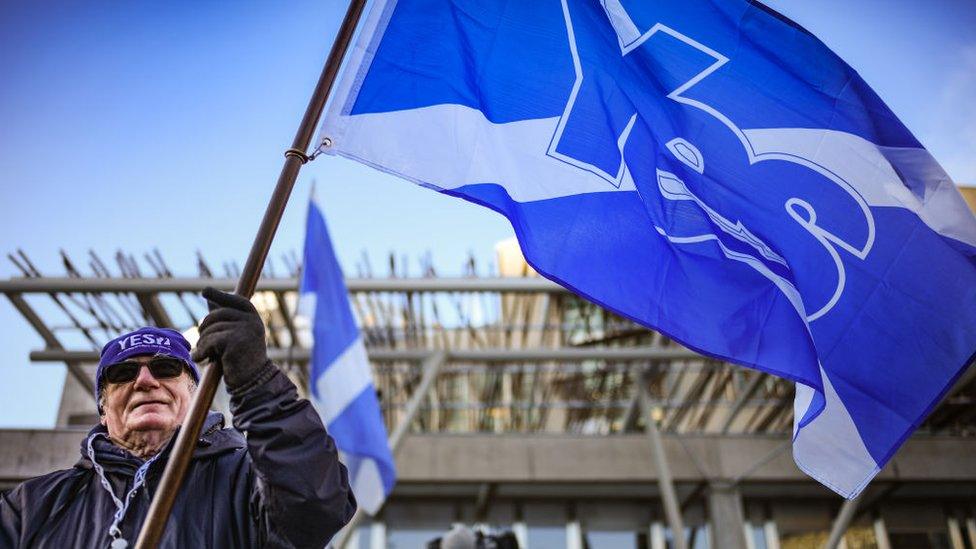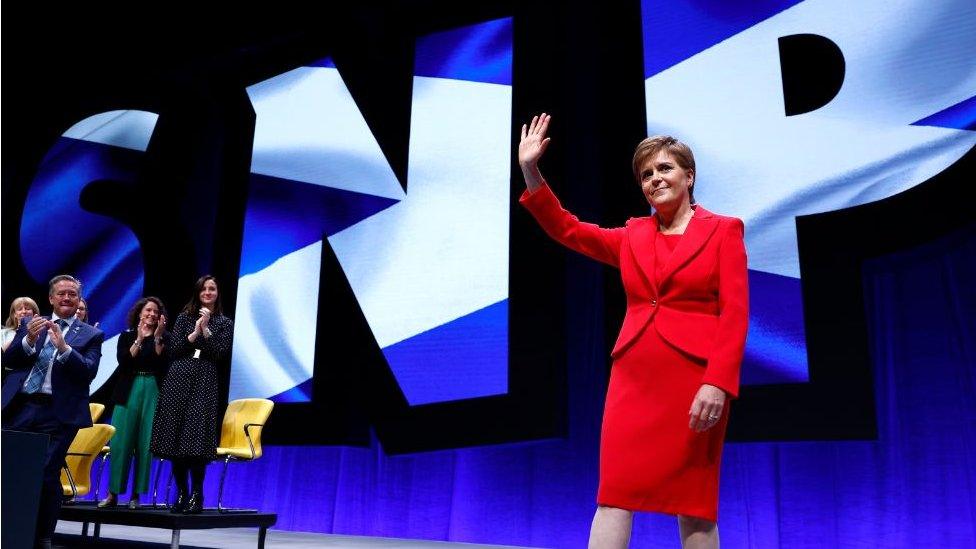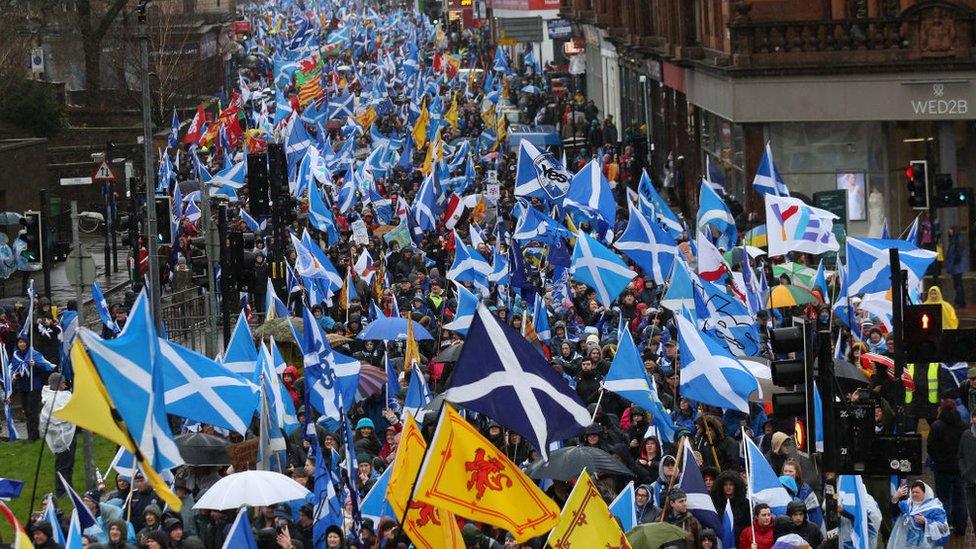Are elections the way to break the indyref2 deadlock?
- Published

The next UK general election was to be an independence showdown - a substitute for another referendum, if all routes to that were blocked.
That, at least, was how it seemed when Nicola Sturgeon first alighted on the idea, in June last year.
She might still try it. Then again, she might not. It depends what SNP members decide at a special conference in Edinburgh on Sunday 19 March.
The party's ruling body has now unanimously agreed a "draft resolution" that offers a choice between the next UK election (probably in 2024) and the next Holyrood vote in 2026.
If they opt for Westminster, the proposal is for the SNP to make clear they would consider every vote for them as a "yes" to the question: "Should Scotland be an independent country?".
The party would claim a mandate to negotiate independence with the UK government if it won more than 50% of the votes cast.
They say votes for other independence-supporting parties could count too but only if there was an agreement with the SNP in advance.
It's relatively easy to see that kind of deal being struck with the Greens. Less so with Alex Salmond's party - Alba.
If SNP members opt for Holyrood, the idea is much the same although the party has not specified whether they would count constituency votes, regional list votes or both in their independence calculations.
Before getting to that, there would be a further attempt to persuade Westminster to agree to a referendum.
If the SNP were to win the most seats in the next UK general election, they would demand the power to hold a referendum and only if that was refused would they take the fight into the Holyrood campaign.
One consideration is that 16 and 17-year-olds, EU nationals and legally resident foreign nationals get to vote in Holyrood elections but not for Westminster.
It's not so long since the SNP leadership rubbished talk of trying to bring about independence via an election - with Ms Sturgeon at one point suggesting that discussing alternatives to an actual referendum was a "unionist trap".

Nicola Sturgeon has called for a full and open debate
An official referendum remains her preference but there is no obvious prospect of securing one and no agreed route to doing so.
While "yes" supporters say democracy is being denied, "no" backers say the democracy of 2014 should be respected and that if a settled majority for independence emerges, there could be another referendum then.
In 2014, the referendum rejected independence by 55% to 45%. The SNP think Brexit is a significant change of circumstances that justifies another vote.
Winning a majority for indyref2 with the Greens in the 2021 Holyrood election did not persuade Westminster to agree terms. Plan A failed.
The UK Supreme Court rejected the argument that Holyrood has the power to hold a referendum without UK government consent. Plan B failed.
That is why the SNP moved on to Plan C - to target one election or another.
Nicola Sturgeon clearly specified the next UK general election last June but in her SNP conference speech in October she talked about using "an" election without saying which one.
When I pointed this out on social media and raised the potential flexibility in her wording, a senior SNP source told me I was "over interpreting". Maybe not.
While the SNP still describe using the next Westminster vote to test support for independence as the "principal" alternative to the referendum they really want, it is no longer the only one.

And if SNP members don't like the idea of using either the next UK or Scottish general election, they are invited to submit further options of their own.
Nicola Sturgeon has called for a "full and open" debate and has not yet specified which option she prefers.
Given that she has previously described a UK election as the "best" opportunity to put the independence question - my guess is that remains her starting point.
If the party prefers to defer this showdown that could be seen as a rare and significant rejection of her leadership.
The SNP say using either election as an independence vote would be "credible and deliverable" except that it does not have buy-in from their opponents.
There can be any number of issues at play in an election and unionist parties do not accept that it can be a legitimate route to Scottish statehood.
Treating an election as a referendum would be a huge gamble. The SNP has never won a majority of votes in an election before, although they came very close in 2015.
Failure would be a major setback for the independence campaign. It would demand new thinking and - presumably - new leadership.
Success would increase democratic pressure on the UK government but it would not necessarily deliver independence. That would still require Westminster consent.
Without an agreed referendum, the SNP leadership has concluded that election results are their best chance of breaking the deadlock - that there is nowhere else for them to go.